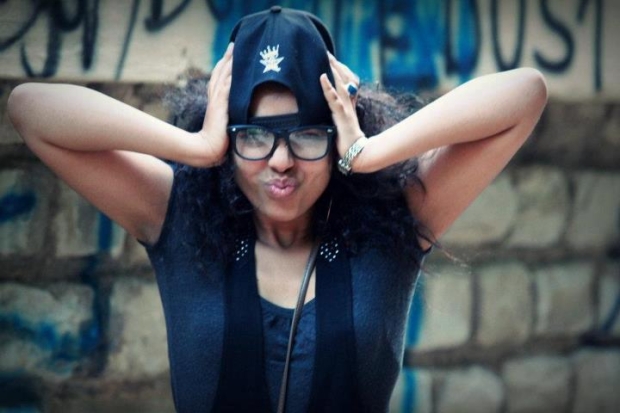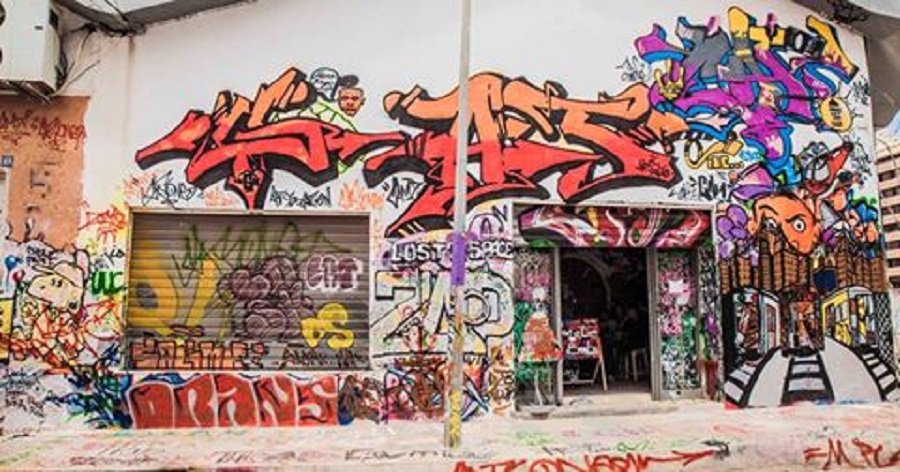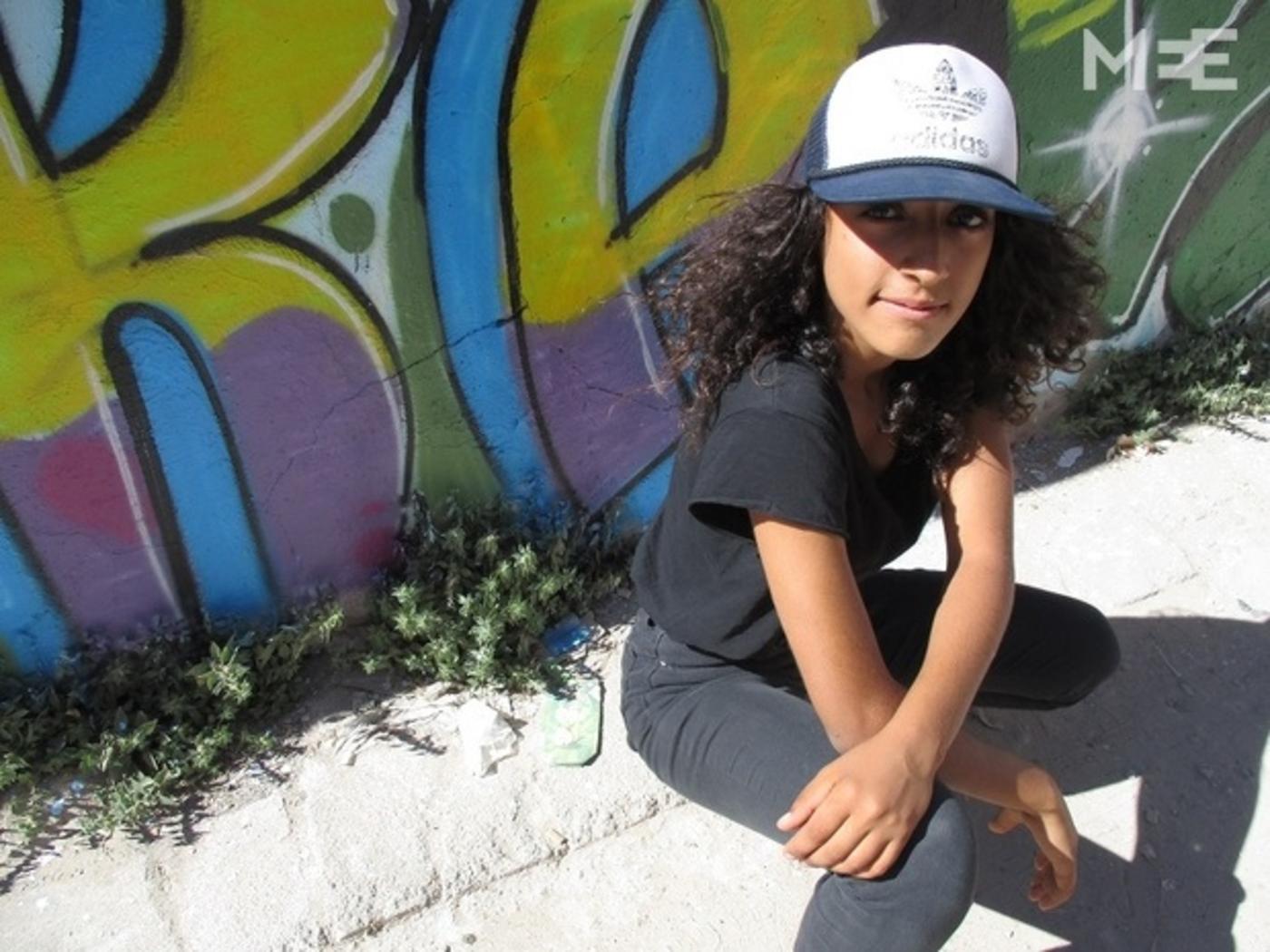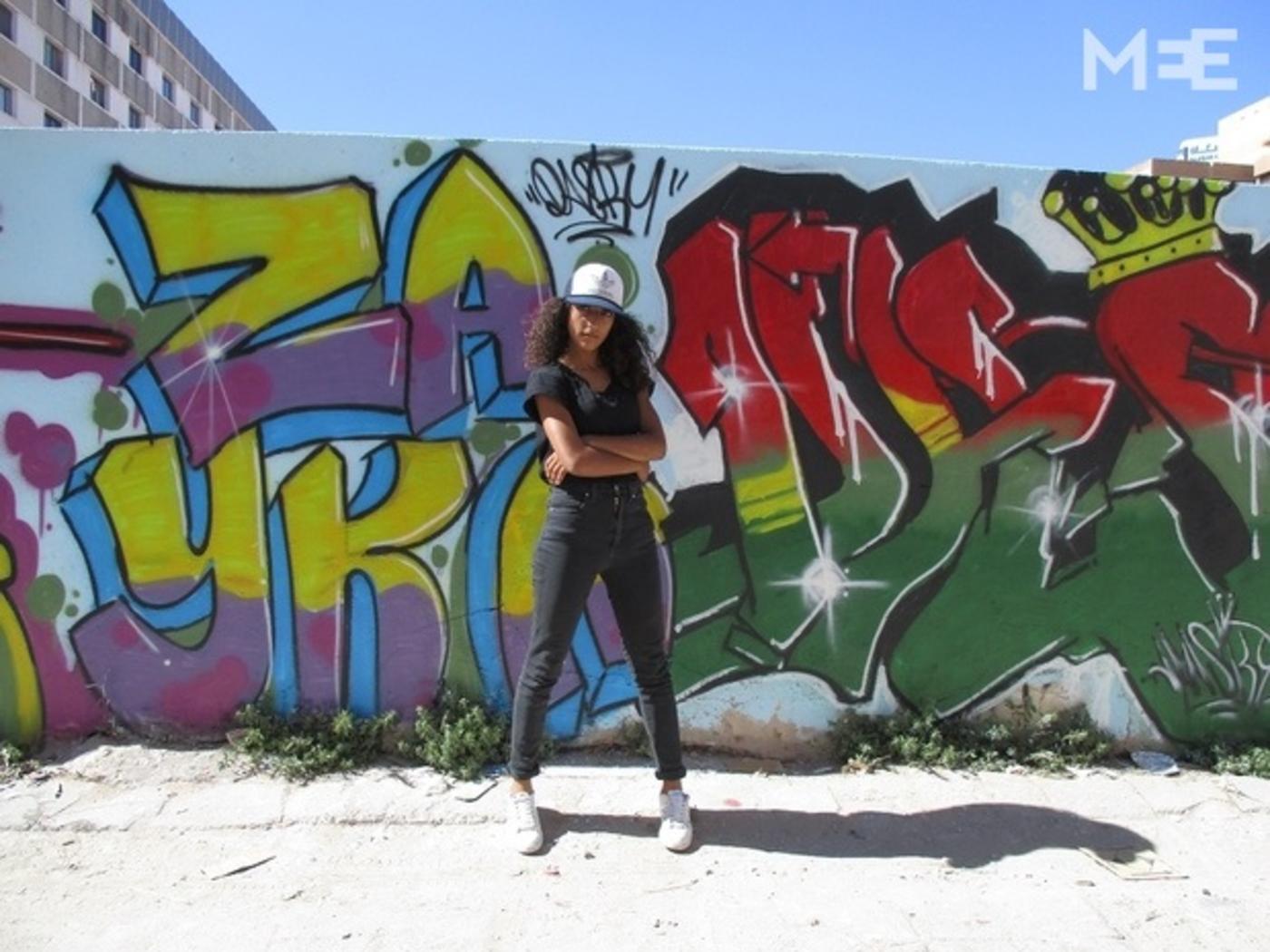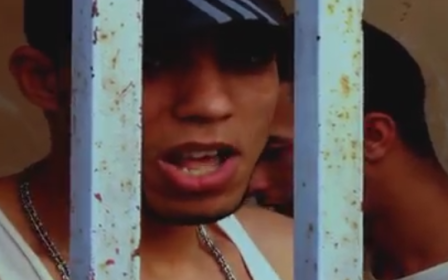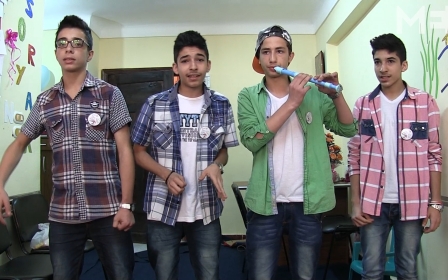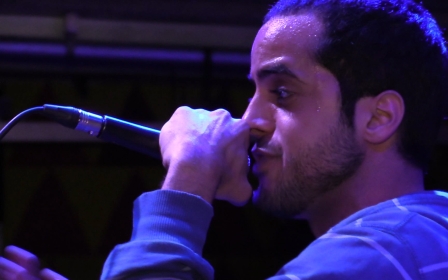Women in hip hop: Making space for Tunisia’s unseen queens
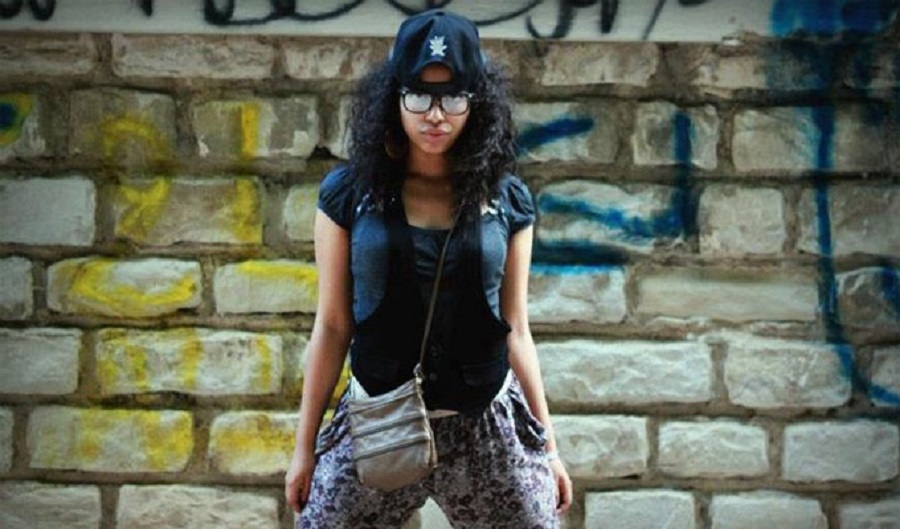
TUNIS - Boutheina El Alouadi walks into a cafe at the Neapolis Cultural Centre in Nabeul wearing a relaxed, easy expression and a black oversized t-shirt with Wu-Tang emblazoned across the front. After receiving a warm welcome from nearly everyone in the building, she explains that the cultural centre is within walking distance of her childhood home.
When El Alouadi, who goes by the stage name Medusa, wrote and performed her first rap song in her hometown of Nabeul, she was only 16. Since then, the 25-year-old dancer-turned-rapper has performed at numerous music festivals and collaborated with several internationally acclaimed artists, including Olof Dreijer of Swedish electronic duo, The Knife.
Having begun classical dance lessons at the age of six, El Alouadi was quickly seduced by hip hop, which was, as it turns out, a family affair.
“My brother was a breakdancer and rapper and my uncle is a rapper. When I saw my brother breakdancing, I wanted to do it as well.”
New MEE newsletter: Jerusalem Dispatch
Sign up to get the latest insights and analysis on Israel-Palestine, alongside Turkey Unpacked and other MEE newsletters
By the age of 10, El Alouadi and her friends had started copying the older kids doing breakdance. Their first practice location was rather unexpected: the local mosque. “The floor was hard and flat and good for practising,” she explains, cracking a smile.
Family matters
Fifteen years ago, El Alouadi’s chosen hobby was a bit of an anomaly and women and hip hop were still an unheard of combination in Tunisian society. “Women just didn’t do [hip hop.] It was viewed as haram (meaning forbidden or proscribed by Islamic law).”
Her experience, however, was different.
As a teenager, her family trusted El Alouadi enough to let her spend time with men and boys not in her immediate family, she explains. "I have always had guy friends; they have always treated me like a brother. When I wanted to record my music, which is very expensive in Tunisia, [it was] my family that gave me the money to do so.”
Even El Alouadi’s friends and fellow rappers were aware of the important role that her family played in supporting her development as an artist.
She smiles, recalling how Zomra, a hip hop collective whom she cites as “very close friends,” would refrain from swearing whenever they recorded video clips together, out of respect for her family members “who still watch every single one of my videos”.
“My family,” she insists, “is the strong point in my career.”
A male-dominated industry
One of the things that distinguishes El Alouadi's lyrics from those of her fellow rappers is her unique, feminist perspective.
“The themes that I use in my rap are very different from other rappers in Tunisia. Here, unfortunately, a lot of [mainstream] rappers talk about girls and alcohol,” she says.
But this is not just a Tunisian problem. Hip hop has long had negative associations of misogyny, and female rappers are too often held to a different standard than their male counterparts.
At first, El Alouadi is reluctant to comment on the subject of misogyny in hip hop culture. But later, she admits that the hip hop scene can be very macho. “[As a female rapper], I was frequently faced with sexual harassment at shows, events [et cetera]. But I don’t want to generalise, out of respect for those who don’t do it.”
When it comes to other female rappers in Tunisia, El Alouadi does not hide her disappointment. “There are certain women who do it, but there aren’t really that many women who implicate themselves as much as I do. I put everything into my career, even if I have had to be more discreet [since giving birth to my daughter and starting a family.] I want to see other Tunisians do what I did before. I don’t know what happened. There were women who were active, who did clips, but now they are silencing themselves.”
Where are the other female rappers?
While the apparent absence of female rappers could stem from a myriad of factors, it may be that it comes down to the lack of visibility and/or recognition of existing female artists in the public sphere, which in turn discourages other women from entering the scene. This, however, is a problem that plagues Tunisian artists in general.
“There’s a proverb, 'no one is a prophet in his own country.' If you do something here, in Tunisia, they will make fun of you; they’ll say that you copied another artist. But when you go abroad and come back famous, you are welcomed with open arms,” says El Alouadi.
She may be onto something here. While it is rare to find female rappers, VJs or hip hop artists making a name for themselves in Tunisia, names do begin to pop up when you consider Tunisian artists living and working abroad: Deena Abdelwahed, Missy Ness, and El Dej, to name a few.
“We feel like we are singing in the dark in Tunisia. We don’t have the status of an artist… we don’t even have medical insurance. The government doesn’t value artists.”
For El Alouadi, investing in cultural capital is key to discouraging youth from turning towards violence and extremism. “If youth don’t learn something beneficial, rich, like art, they will go towards negative.”
Shedding light on youth in hip hop
Tag Store is an unexpected shock of colour at the heart of downtown Tunis. Graffiti spills out onto the surrounding walls and buildings of Rue de Lenine; a vibrant, chaotic energy seems to have taken over the block. Youth are scattered along the entire block, talking, tagging, eating.
This is the “front-end” of Art Solution, an association which works for the promotion and support of urban sub-culture in Tunisia. The association, founded by Chouaieb Brick in 2011 and currently working with the British Council, has become a pivotal hub for Tunisia’s young hip hop community.
For Sana Jlassi, director of communications and logistics at Art Solution, the association was a way to engage with marginalised youth in a positive way. “It’s about guiding youth in terms of what they have to do [to get ahead], and how they have to do it. [We are] pushing them not to abandon their talents. Art Solution also serves as a structure for leadership and for spreading knowledge. Sharing your knowledge is a way of recognising what you possess.”
Jlassi believes that this type of structure is particularly important when it comes to improving the visibility and inclusion of women in hip hop. “Women have always constituted an essential part of the hip hop community but now their work is highlighted, whereas before, it was not. For instance, during Alternative Vibes - a recent event hosted by Art Solution - a female graffiti artist from the UK did a workshop with other female artists. Before, those women had never heard of one another. It is enough to have a platform.”
While Art Solution has served as an important bridge between a more mature community of female artists, it has also played an important role in coaching young talents such as Nour Ben Soltan, a 17-year old B-girl (breakdancer) who has begun to make a name for herself in the hip hop scene.
Nour Ben Soltan
In photos, Nour Ben Soltan (BGirl Crazy Flava) is imposing; her body seems to jump out of the frame. In person, however, she is surprisingly small in stature, even delicate-looking. What first betrays her is her eyes – her gaze is intense, piercing, confident. When she walks into Tag Store she seems to be bouncing, half-dancing.
The 17-year-old began dancing in the youth community centres of Hay Hlel, one of the most marginalised neighbourhoods in the Southern suburbs of Tunis. She has since gone on to participate in a number of major events, most recently in War Zone, Tunisia’s first collective hip hop event, and the Beat the Beat Festival in Sousse, where she placed first in her category (B-girl).
“At the start,” says Ben Soltan, “I wasn’t particularly interested in hip hop. But I came to realise that it was a big part of dance culture, even in Hay Hlel. I started out by learning to break dance on my own and then, little by little, I came into contact with people who helped me and initiated me [into the hip hop community.]”
When asked about her influences, Ben Soltan cites Chouaieb, the founder of Art Solution, and Mohamed Ali Khlifi, a 28-year-old B-boy and photographer who has been an important mentor and role model for her.
Khlifi came into contact with Ben Soltan via a post that he had shared on Facebook. “It was almost three years ago,” explains Khlifi. “We met in the Avenue Bourguiba and she [told me] that she needed someone to practice with in order to grow and evolve [as a dancer].”
Khlifi says that he is eager to teach young people, but that it is often challenging because they do not show enough energy, passion and dedication.
“With Nour, it was a lot easier. She was there and she was ready. We took the place in front of Palmarium (a well-known cafe in downtown Tunis) and just practised in front of thousands of people. She was pretty happy with it; she came with her sister and from there we kept meeting. [Nour] grew in a way that I was not expecting. To tell you the truth, I was not that optimistic about the community of female dancers here. But she knew different styles and incorporated them to come up with something new and fresh. I would explain [a new dance move] to her, and she [would] unconsciously understand it through movement. She doesn’t understand it intellectually. I think that’s how it should be.”
Nour Ben Soltan - 'BGirl Crazy Flava' - dancing at Alternative Vibes, an event put on by Art Solution
Ben Soltan, unlike El Alouadi, did not always have a good support system. “At the start, my family was against [me dancing]. They wanted me to do something else and to focus on my studies. But after some time they understood and accepted my love of dance.”
When it comes to the social pressures and stigma confronted by young women in hip hop, Ben Soltan says that she is unfazed.
“How I am perceived by society is my last concern, so long as I can pursue my passion and excel at what I do. It’s a question of knowing what you want and at the same time, [not succumbing to] the pressure of others.”
When asked to give advice to other young girls wanting to pursue hip hop, Ben Soltan suggests the following: “Make your parents happy by continuing your studies and at the same time, do what you are passionate about - dance.”
“Is that what you did?”
“No. It’s what I didn’t do.”
This article is available in French on Middle East Eye French edition.
Middle East Eye delivers independent and unrivalled coverage and analysis of the Middle East, North Africa and beyond. To learn more about republishing this content and the associated fees, please fill out this form. More about MEE can be found here.


